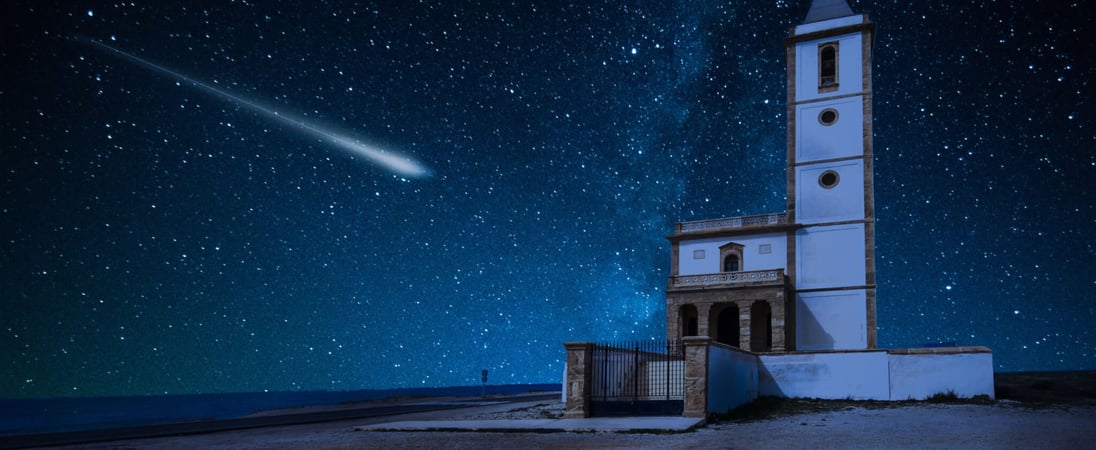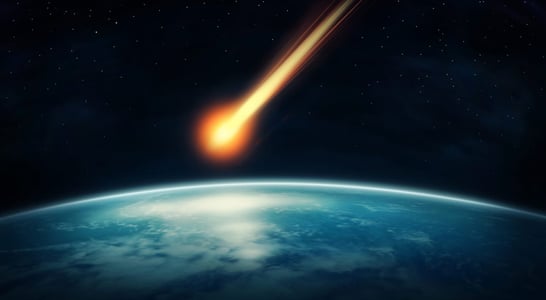
International Asteroid Day
Explore the mysteries of space rocks hurtling through the galaxy, with the potential to unlock secrets of our universe!
Raising public awareness and educating people about the opportunities and risks presented by asteroids. The goal is to inform the public regarding various actions and efforts that should take place in case the need should arise.
Get ready to learn more about and enjoy International Asteroid Day!
How to Celebrate International Asteroid Day
Many opportunities are available for getting involved with International Asteroid Day. Try out some of these ideas:
Attend an International Asteroid Day Event
Events and activities for International Asteroid Day are located in communities all over the world. Whether attending a lecture, watching a program on Asteroid Day TV or reading a paper to learn more about the possibilities and preparedness that may be vital in the future, this day is a great time for it. In addition to simply attending an event, some people might want to volunteer.
Events are organized by museums, universities, schools, clubs, space agencies and educators all over the world. The list of officially sanctioned events can be found on the Asteroid Day website, with activities listed as happening in hundreds of cities on all of the inhabited continents.
Host an International Asteroid Day Event
Those who don’t have events taking place in their local area might want to consider hosting one. Invite local scientists to participate through lectures and discussions. Or get some local musicians to host a benefit concert in support of the day. After all, one of the founding members of the day is astrophysicist and guitarist, Brian May, so the theme of music runs deeply here!
If hosting an event, don’t forget to officially register it with the Asteroid Day website so other interested parties in the local area can also get involved.
Throw an International Asteroid Day Party
Gather friends, family members and neighbors for a night of fun and entertainment centered around the idea of asteroids. Staying with the motif of space, it’s fun to ask guests to dress up as their favorite space-themed character.
Food can also be planned around the idea, with cookies decorated like planets, fruit and marshmallow kebabs shaped like rocket ships or popcorn balls shaped like…asteroids, of course! For entertainment, get a blast from the past and dig up a version of the classic 80s video game, Asteroids. Blast them all before they blow up your spaceship!
Watch a Film with an Asteroid Theme
Perfectly tailored to International Asteroid Day, put on an educational documentary about asteroids. Or get a little more wacky and watch some sci-fi or comedy films revolving around the theme of space.
The first film to check out would be 51 Degrees North, a film that was created by some of the members of the team who founded International Asteroid Day and was, in fact, the inspiration for the day. Filmmaker Grigorij Richters and Queen guitarist, Brain May, were both involved in the making of this fictional depiction of what might happen if an asteroid landed on London, England.
Other ideas for asteroid-themed films are:
- Meteor (1979). Starring Sean Connery, Natalie Wood and Henry Fonda, this film imagines what might happen if a meteor or asteroid was heading straight to earth and a nuclear weapon was the only thing that could stop it.
- The Day the Sky Exploded (1958). This science fiction drama has the similar theme of what scientists should or would do if an asteroid was headed towards Earth.
- Don’t Look Up (2021). Jennifer Lawrence and Leonardo DiCaprio lead an all-star cast as two astronomers who try to warn everyone that the world is about to be hit and explode.
- Seeking a Friend for the End of the World (2012). Keira Knightley and Steve Carell show the relationship of two people who take a road trip to find the man’s long lost love before the earth is destroyed by an asteroid.
History of International Asteroid Day
While it is unclear exactly how long asteroids have been floating around in the solar system, scientists believe that they go back tens of millions of years. They can range from small to large – 10 meters across to more than 500 meters across. Added together, the total mass of all current asteroids in our solar systems would be less in size than the Earth’s moon.
Scientists estimate that approximately 65 million years ago, an enormous asteroid fell to the earth in the area that is presently Yucatan, Mexico. This is referred to as the Chicxulub impact and some scientists think this may be what contributed to the extinction of the dinosaurs. This asteroid may have been the size of some small countries and left a crater that was somewhere around 150 km in size where a rim of mountains the size of the Himalayas formed around the edge.
In more recent history, the Tunguska Event occurred in a Siberian desert area in 1908. This explosion happened in the area that is now known as Krasnoyarsk Krai was classified as an impact event. Though no impact crater was left behind, this asteroid is believed to have disintegrated in the earth’s atmosphere before hitting the surface. The Tunguska Event is the largest asteroid impact event to have been recorded in human history, with eyewitness reports that were gathered afterward.
The most recent event, one that can still be recalled by people who are alive today, also happened in Russia in an area in western Siberia known as Chelyabinsk, in 2013. No one died or was injured directly from the small asteroid that exploded prior to landing, but many injuries were reported from the side effects of the blast.
International Asteroid Day was founded by Stephen Hawking and a collection of other people, including an Apollo 9 astronaut, a filmmaker, and Brian May – who was the guitarist for Queen and also an astrophysicist. June 30 was chosen for the day as it is the anniversary of the 1908 incident in Siberia.
The day officially launched in 2014 with the support of more than 200 astronauts. It took two more years before it was officially recognized by the United Nations in 2016.
International Asteroid Day Timeline
65 Million Years Ago
The Chicxulub Event happens
Perhaps the reason that dinosaurs no longer roam the earth, this asteroid was roughly 10-80 km in size and hits earth in what is modern day Mexico.[1]
1908
Tunguska Event in Siberia
An asteroid lands in remote parts of Russia and has an impact of eight hundred square miles.[2]
1989
Galileo spacecraft is launched
The first spacecraft to orbit an outer planet, Galileo is also the first to observe an asteroid from a short distance.[3]
2013
Small asteroid hits in Russia
The first asteroid event on earth in the 21st century, this one is only 20 meters in diameter and it explodes while still approximately 30 km in the air, though it did still cause a fair share of damage.[4]
2016
International Asteroid Day is recognized by UN
Originally initiated by Stephen Hawking and a group of others supporters, International Asteroid day was declared official by the United Nations General Assembly.[5]
International Asteroid Day FAQs
Can asteroids have moons?
At least 150 asteroids have been identified by scientists as having small, companion moons and sometimes two moons.[1]
Have asteroids ever hit earth?
Yes. The most recent asteroid to hit earth was in 2013 when it entered as a fireball over Russia and exploded over the city of Chelyabinsk.[2]
Are asteroids and meteors the same?
Asteroids are smaller than a planet but larger than meteoroids, which are pebble-sized. Meteors are what happens when meteoroids burn up upon entering the earth’s surface.[3]
Where is the asteroid belt located?
The main asteroid belt in the Milky Way solar system is located in a region between the planets of Mars and Jupiter.[4]
How many asteroids are there?
Scientists have counted more than 1 million asteroids.[5]
Also on ...
View all holidaysNational Meteor Watch Day
Host a meteor-watching party with friends or family, or simply lie outside at night and see if you can spot a falling meteor. Grab a telescope to get a better look.
Social Media Day
Post, retweet, reblog, comment and hashtag…get involved online on Social Media Day, or try out a new platform to connect to others, find new content, and more.
National Outfit-of-the-Day Day
Showcasing personal style with a daily ensemble — an expressive way to share fashion inspiration and creativity online.




